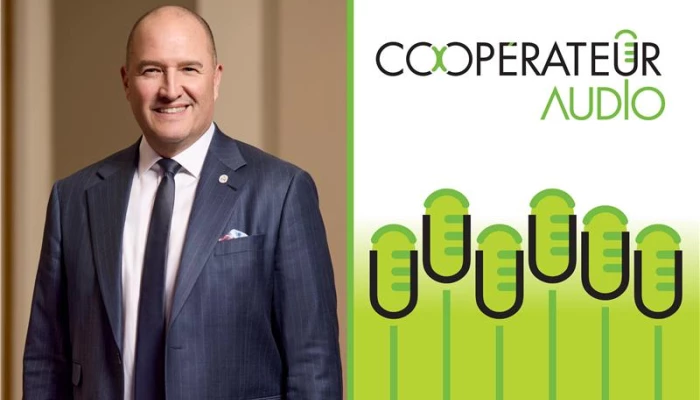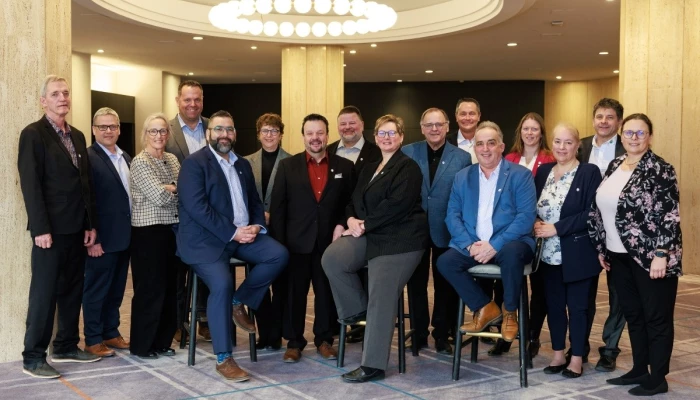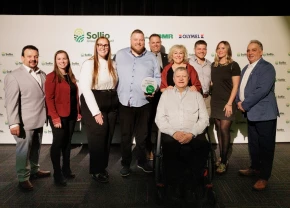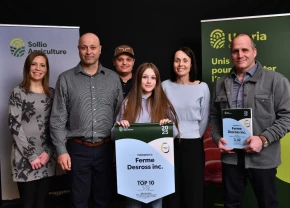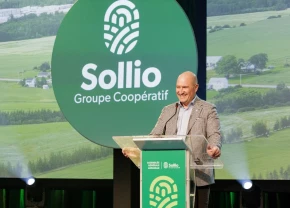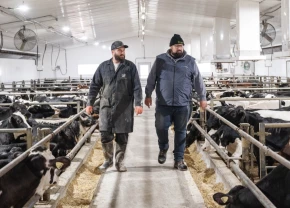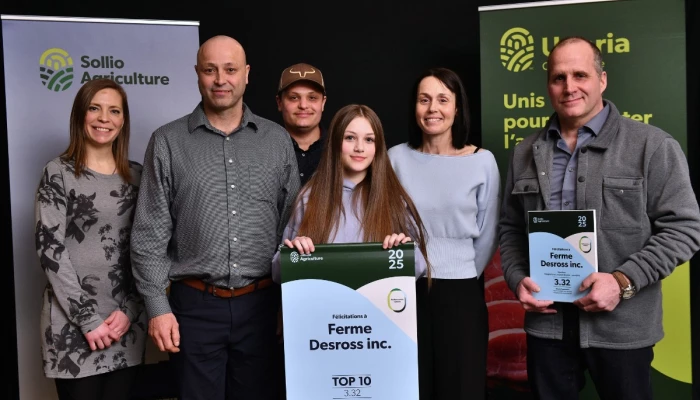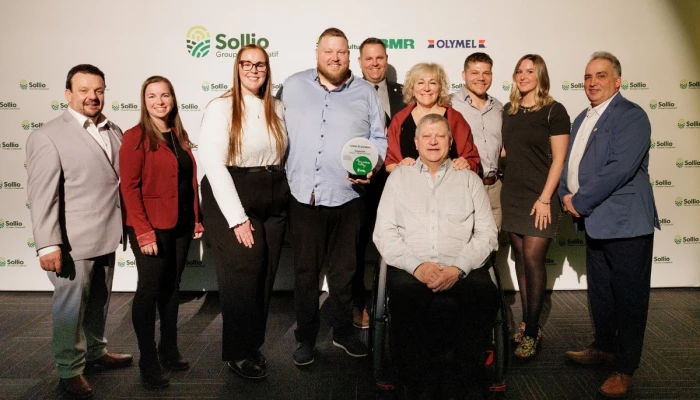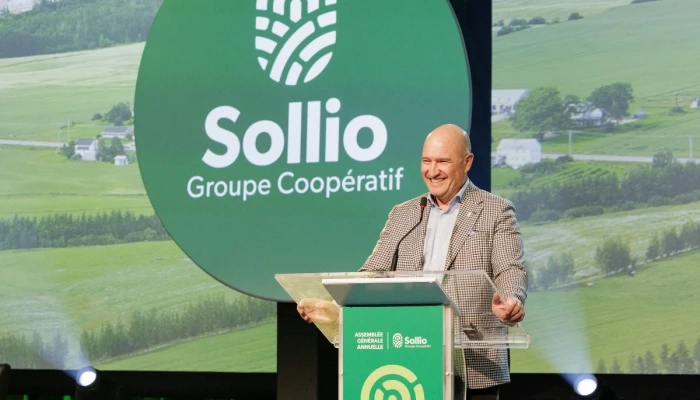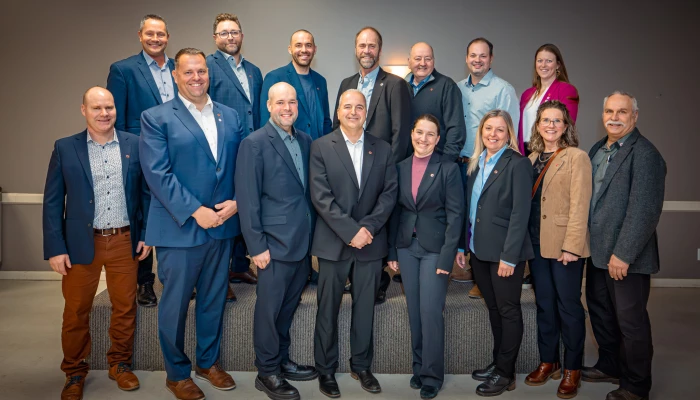Réseau coopératif
Réseau coopératif
Contenu en vedette
Que se passe-t-il dans votre coopérative, Sollio Groupe Coopératif, Sollio Agriculture, BMR et Olymel? Vous aimeriez aussi en savoir plus sur la coopération? C'est ici que ça se trouve!
Le conseil d'administration de Sollio Groupe Coopératif se renouvelle après la tenue de sa plus récente assemblée générale annuelle.
Près de 130 personnes se sont réunies pour célébrer les résultats des membres d'Unoria Coopérative lors de la Soirée Performance laitière.
Les fermes gagnantes du Prix relève Sollio 2025-2026 ont été révélées lors de l’AGA de Sollio Groupe Coopératif du 26 février 2026.
Le conseil d'administration de Sollio Groupe Coopératif se renouvelle après la tenue de sa plus récente assemblée générale annuelle.
Sollio Groupe Coopératif présentait le 26 février 2026, dans le cadre de son assemblée générale annuelle, des résultats financiers solides.
VIVACO groupe coopératif a présenté ses résultats de l'exercice 2024-2025, accueilli son nouveau président et souligné l'importance de la relève agricole.


